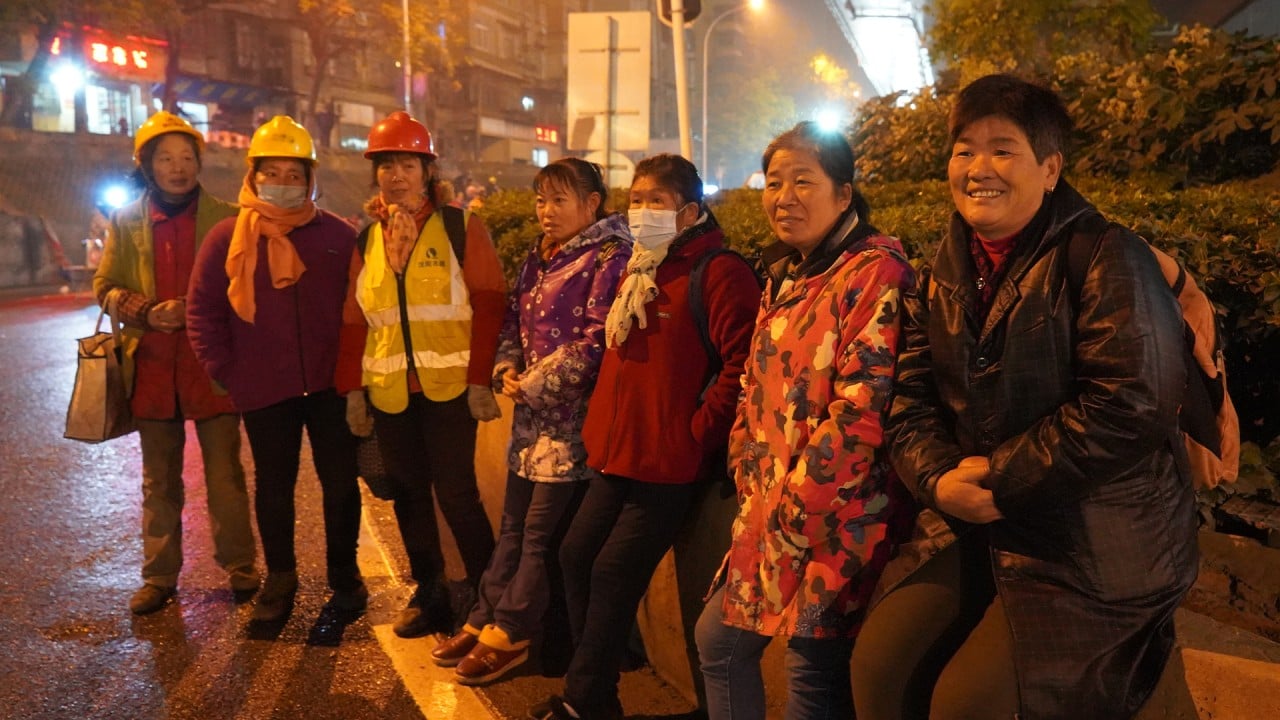
Coronavirus lockdown: what can Hong Kong learn from China’s cities?
- Wuhan was the first to tell people to stay home and kept supplies flowing through community organisation
- But tragedies in Xian also serve as salutary examples
“I panicked at the beginning of the lockdown,” Liu Chaoye, a retired teacher in Wuhan, said. “Food was in short supply and vegetable prices surged. But one week later, everything seemed to be on track.”
Thanks to a developed e-shopping system, Liu found he could still place orders on e-commerce platforms. Daily necessities were brought to his door by volunteers, while street-level cadres organised routine Covid-19 tests, collecting temperature data and handling emergencies.
“I give credit to the street management cells, an army of volunteers and a well-developed e-shopping culture,” he said. “If Hong Kong has something similar, then lockdown measures will probably work.”
The Wuhan campaign was part of a nationwide effort. China mobilised more than 4.6 million grass-roots Communist Party cells and 4 million community workers to help the city and its neighbouring areas in Hubei province during the lockdown period.
The grass roots is the lowest level of China’s governance system, and refers to residential communities in cities, and villages in rural areas.
Hong Kong shoppers in panic-buying frenzy over lockdown fears
Li Tingrui, a university student in Wuhan, said she took on a variety of volunteer roles during the two months in spring 2020, from unloading and delivering goods from supermarkets, to calling low-income families to check if they have received relief supplies, guarding the gates of residential buildings and taking temperatures.
“I saw a volunteer recruiting ad on social media Douyin by the Communist Youth League in February 2020. I applied and passed. After that, I was invited to a WeChat group where 200 volunteers chose what they would like to do from positions updated by the government daily,” Li said.
“I know Hong Kong’s cases are rising rapidly. But lockdown only works when people are willing to do it and believe it’s in their best interest. If many people think otherwise, they will not work together. Then it’s hard to succeed.”
Liang Feng, a volunteer who worked independently in Wuhan, said coordination between the government, companies and volunteers was most important.
“I offered to buy food and groceries for around 100 households in my neighbourhood at the end of 2019. Without the approval from street cadres, I could not get out of my residential building,” Liang said.
The government ensured food supplies continued to flow to several local chain supermarkets, told Liang about the goods and assigned social workers to help with delivery, he said.
“It was good teamwork. Lockdown works with a capable government,” he said.
The Wuhan lockdown from January 23 to April 8, 2020, played a pivotal role in China’s relentless campaign to bring the coronavirus pandemic under control, with the country the only major world economy to report growth that year.
Since then, China’s emphasis on big government has only grown, with the authorities pooling resources and coordinating efforts to complete key undertakings.
However, the confidence in the capacity of government was challenged during winter by the dysfunction of Xian, the capital city of Shaanxi.
Posts shared on Chinese social media also showed hungry people swapping goods like alcohol and cigarettes for instant noodles and cabbage, as the local government halted operations of supermarkets and restaurants amid a lockdown.



